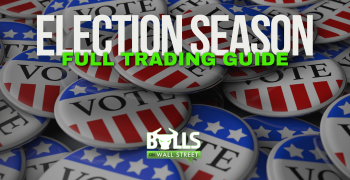Election season is a period of heightened uncertainty in the markets. Political campaigns, debates, and polling results can lead to significant volatility, affecting various sectors and assets. For traders, understanding how elections impact the markets and adopting strategies to navigate this volatility is crucial. Here’s a comprehensive guide to trading during election season.
1. Understand Market Sentiment
Elections often bring a mix of optimism and fear, significantly impacting market sentiment. Political parties’ policies on taxes, regulation, and spending can influence different sectors. To gauge market sentiment:
- Follow Polls and Debates: Keep track of polling data and key debates to understand which candidates or parties might be gaining traction.
- Monitor Social Media and News: Platforms like Twitter and financial news sites can provide real-time insights into market reactions.
2. Focus on Sectors Affected by Election Outcomes
Different sectors react differently to potential election outcomes. For example, healthcare, energy, and finance may experience increased volatility based on candidates’ policy proposals. Consider:
- Healthcare: Policies on healthcare reform can significantly impact pharmaceutical and insurance companies.
- Energy: Proposals on climate change and energy independence can affect oil, gas, and renewable energy stocks.
- Finance: Tax and regulatory changes can influence banking and financial services.
3. Adopt a Risk-Management Strategy
Election season can lead to unexpected market movements. Implementing a robust risk-management strategy is essential to protect your investments. Utilize:
- Use Tight-Stops in High Volatility: Set stop-loss orders to limit potential losses during periods of high volatility.
- Diversification: Spread your investments across various sectors and asset classes to mitigate risk.
4. Leverage Volatility
While volatility can be risky, it also presents opportunities for traders. Use strategies that capitalize on price swings:
- Options Trading: Options can be an effective way to hedge against volatility or speculate on market movements.
- Swing Trading: Take advantage of short-term price movements by identifying trends and executing trades accordingly.
5. Stay Informed and Updated
Staying informed about the latest developments is crucial during election season. Key events can cause sudden market shifts. Keep track of:
- Economic Indicators: Monitor indicators such as GDP, unemployment rates, and consumer confidence, which can influence voter sentiment and market reactions.
- Policy Announcements: Follow policy announcements from candidates to anticipate potential market impacts.
6. Consider Safe-Haven Assets (if you are more long-term investing)
During times of political uncertainty, some investors flock to safe-haven assets like gold, government bonds, and certain currencies. These assets can provide stability and mitigate risk. Consider:
- Gold: Traditionally seen as a hedge against uncertainty, gold can be a safe investment during turbulent times.
- Treasury Bonds: U.S. Treasury bonds are considered low-risk and can provide security during volatile periods.
7. Adopt a Long-Term Perspective
While short-term trading opportunities arise from election-induced volatility, it’s essential to maintain a long-term perspective. Elections come and go, but market fundamentals and economic conditions continue to drive long-term trends. Focus on:
- Fundamentals: Invest in companies with strong fundamentals that can weather political changes.
- Diversified Portfolio: Build a diversified portfolio that can withstand market fluctuations over time.
Conclusion
Trading during election season requires a careful balance of vigilance and strategy. By understanding market sentiment, focusing on affected sectors, adopting a risk-management strategy, leveraging volatility, staying informed, considering safe-haven assets, and maintaining a long-term perspective, traders can navigate the uncertainty and capitalize on opportunities. Remember, the key to successful trading during this period is to stay adaptable and informed, ensuring that your strategies align with the evolving political landscape.
Happy trading!


